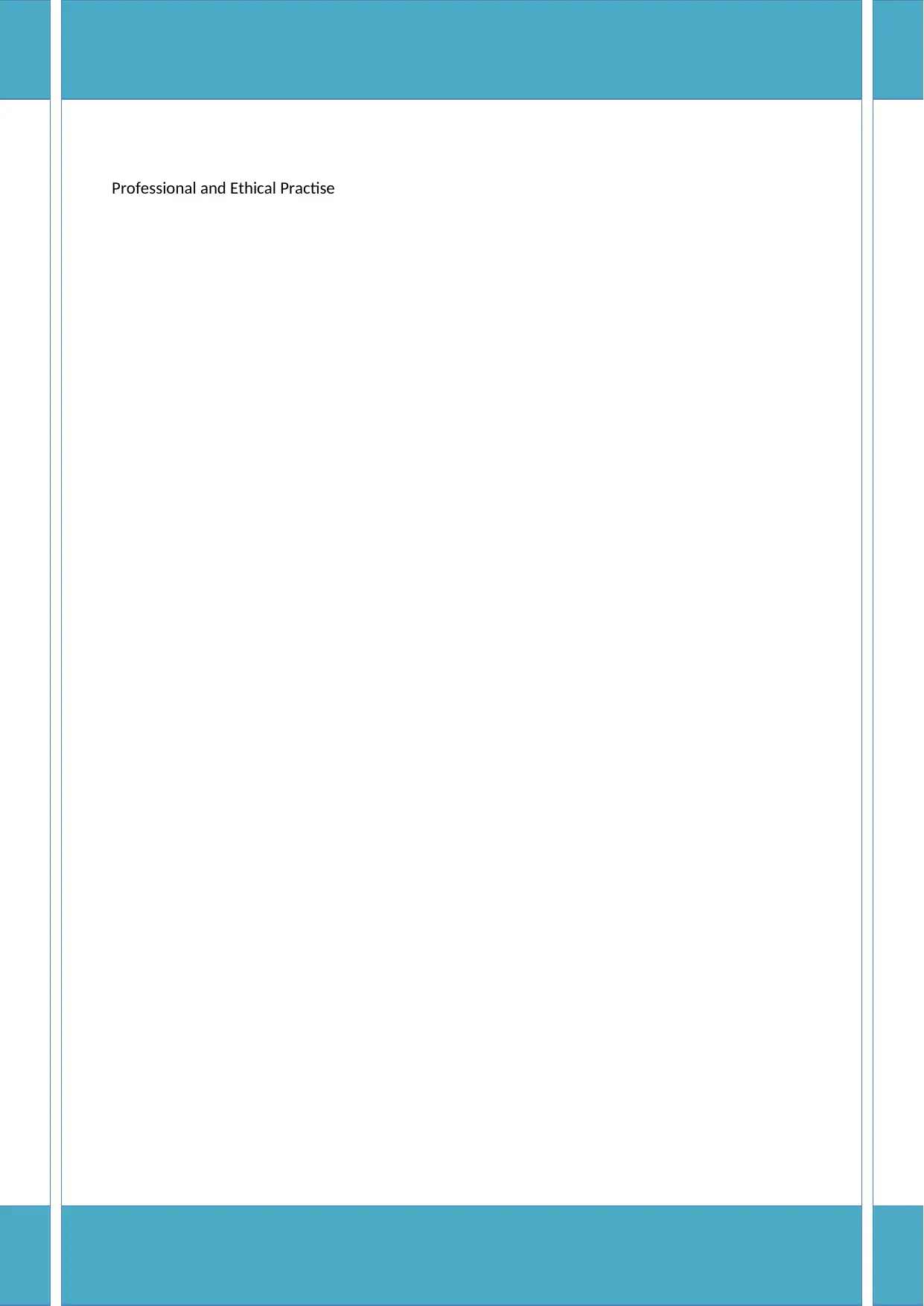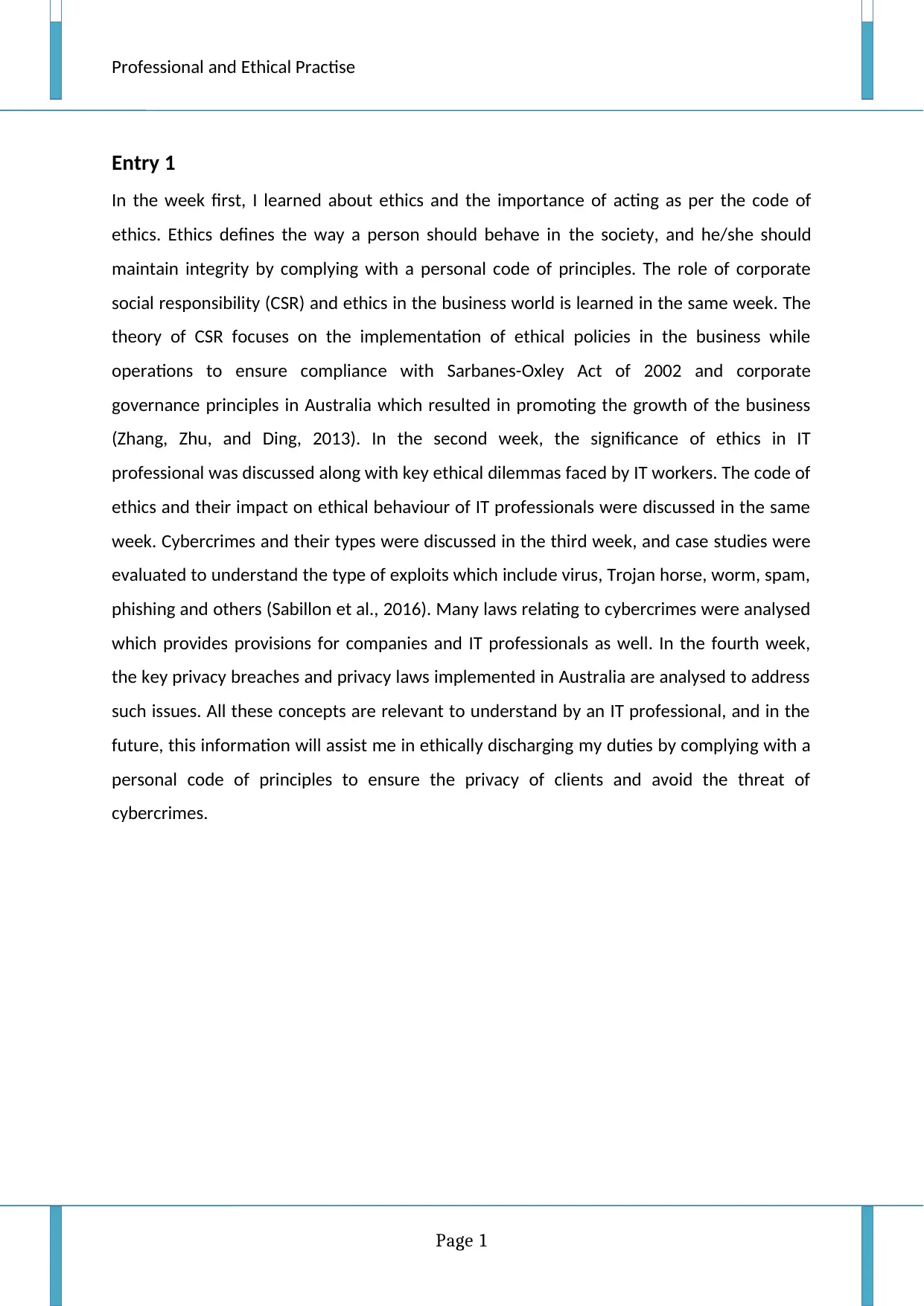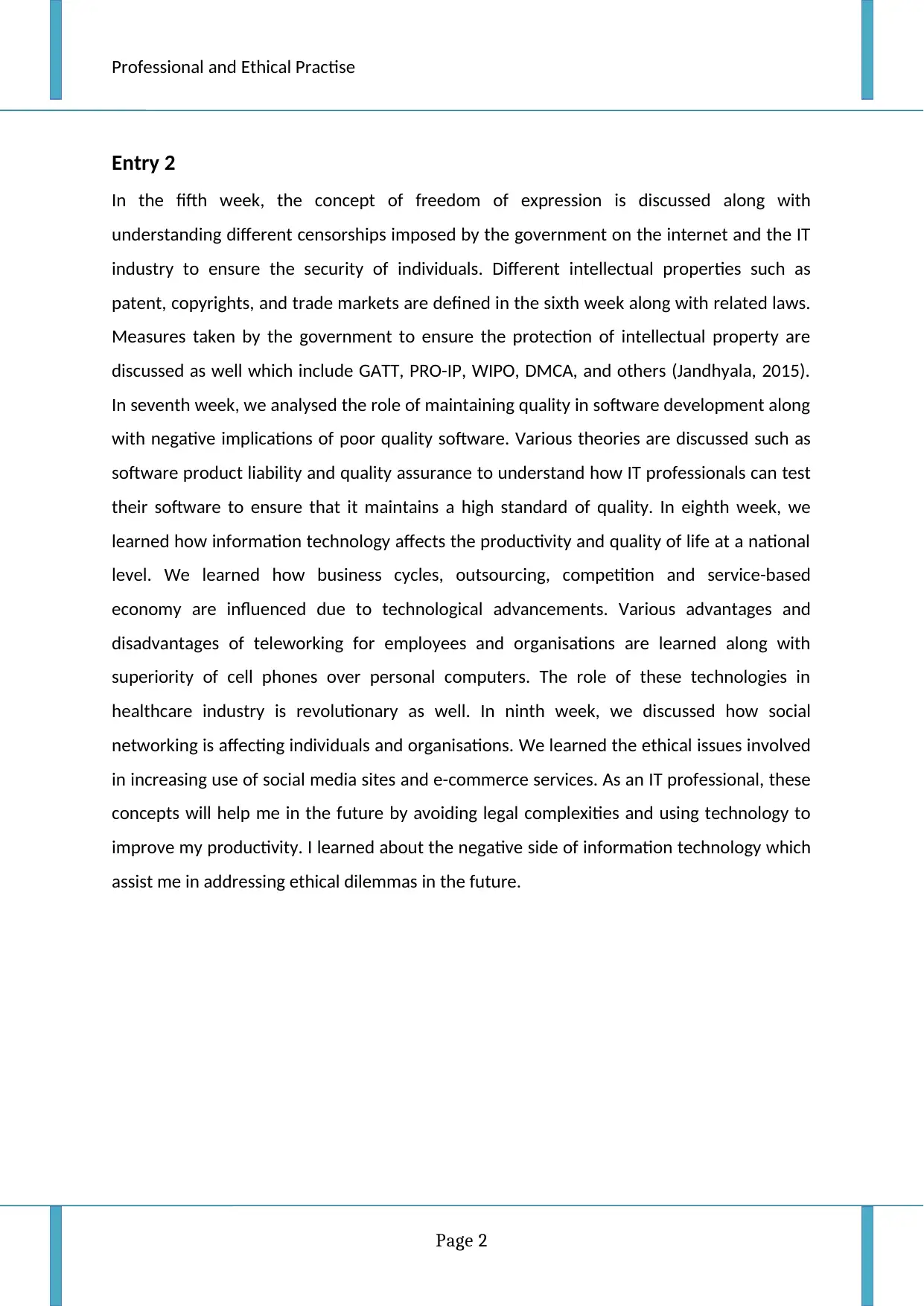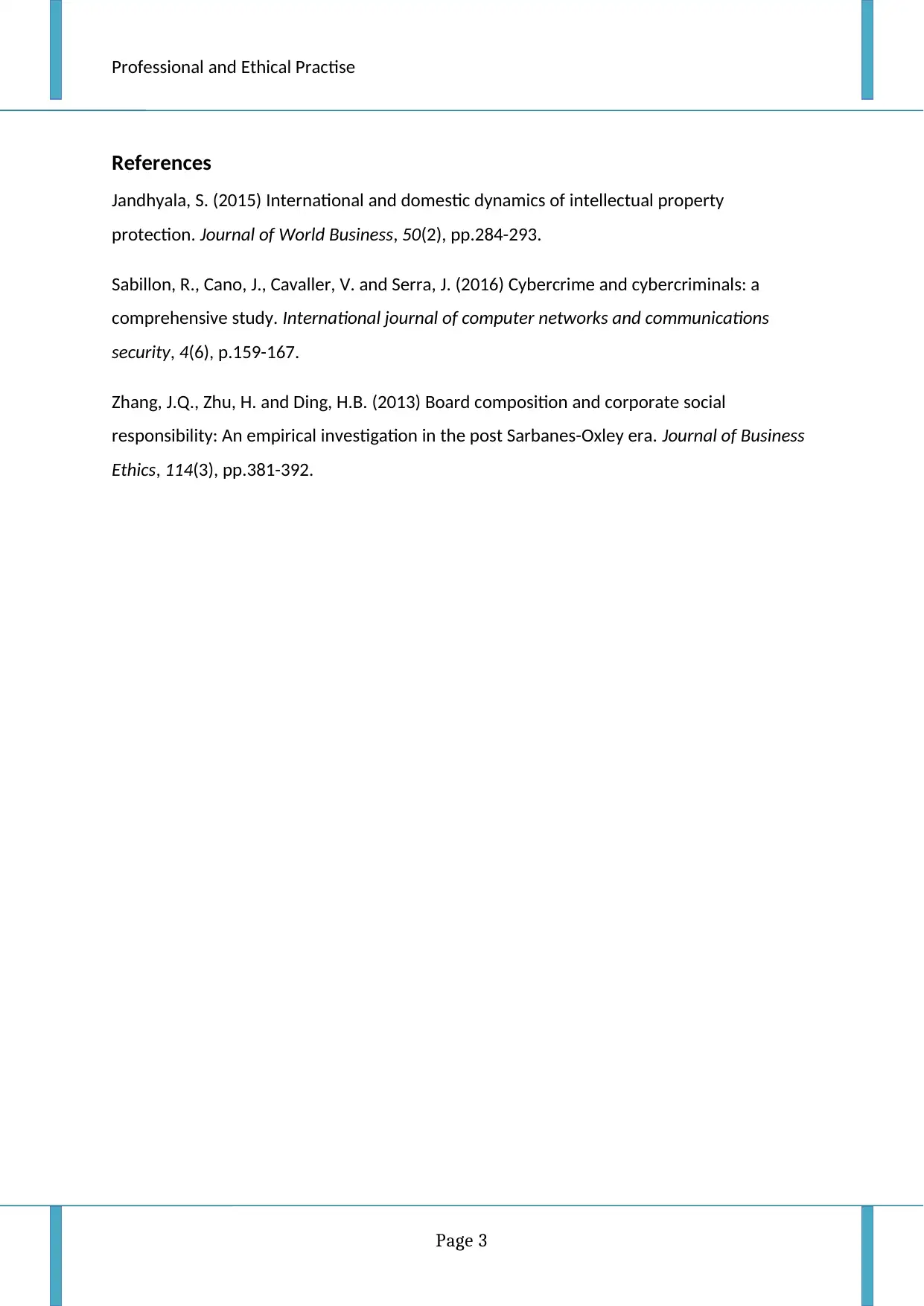IT Professionalism: A Reflective Journal on Ethical Practice
VerifiedAdded on 2023/06/06
|4
|735
|471
Journal and Reflective Writing
AI Summary
This journal entry reflects on key learnings related to professional and ethical practices in the IT field. It begins by highlighting the importance of ethics, corporate social responsibility (CSR), and compliance with regulations like the Sarbanes-Oxley Act. The reflection covers ethical dilemmas faced by IT professionals, various types of cybercrimes, and relevant laws. Privacy breaches and data protection laws in Australia are analyzed. Further, it discusses freedom of expression, censorship, intellectual property rights (patents, copyrights, trademarks), and government measures for their protection. The importance of software quality, potential liabilities, and quality assurance measures are examined, along with the impact of IT on productivity, quality of life, and various economic factors. Finally, the journal reflects on the ethical issues arising from social networking and e-commerce, emphasizing the role of IT professionals in navigating legal complexities and leveraging technology responsibly. This information is crucial for ethically discharging duties, ensuring client privacy, and mitigating cybercrime risks. Desklib provides access to similar solved assignments for students.
1 out of 4









![[object Object]](/_next/static/media/star-bottom.7253800d.svg)